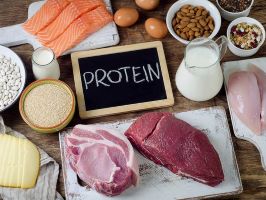Dogs & Protein Deficiencies
There may be a few negative consequences in the short term for dogs suffering from a protein deficiency. On the other hand, protein deficiency for a significant amount of time will lead to long-term consequences. Let’s dive deeper into what proteins are. Proteins are chains of small building blocks called amino acids. It is important to note that many foods are high in protein but don’t have the amino acids necessary for your dog to thrive.
Proteins and amino acids are essential for all cells in every body part. It’s one of the major macronutrients, along with carbohydrates and fat that provide structure to the body. Amino acids provide many important functions in your dog, such as:
- Metabolism
- Brain chemicals and mood
- Hormone control
- Antibodies
- Tissue growth and repair
- Production of vitamins
- Heart, brain, and eye function
A protein or amino acid deficiency symptoms depend on the amino acids the dog is missing. However, the most common signs include:
- Change in mood
- Poor coat or skin
- Reduced growth rate
- Weight loss
- Anemia
You need to pay attention to your dog’s protein levels. Protein is a crucial part of your dog’s diet. Ensure that your four-legged friend is getting enough protein. Speak with your veterinarian if you need assistance choosing the best foods so your dog can be as healthy as possible.



